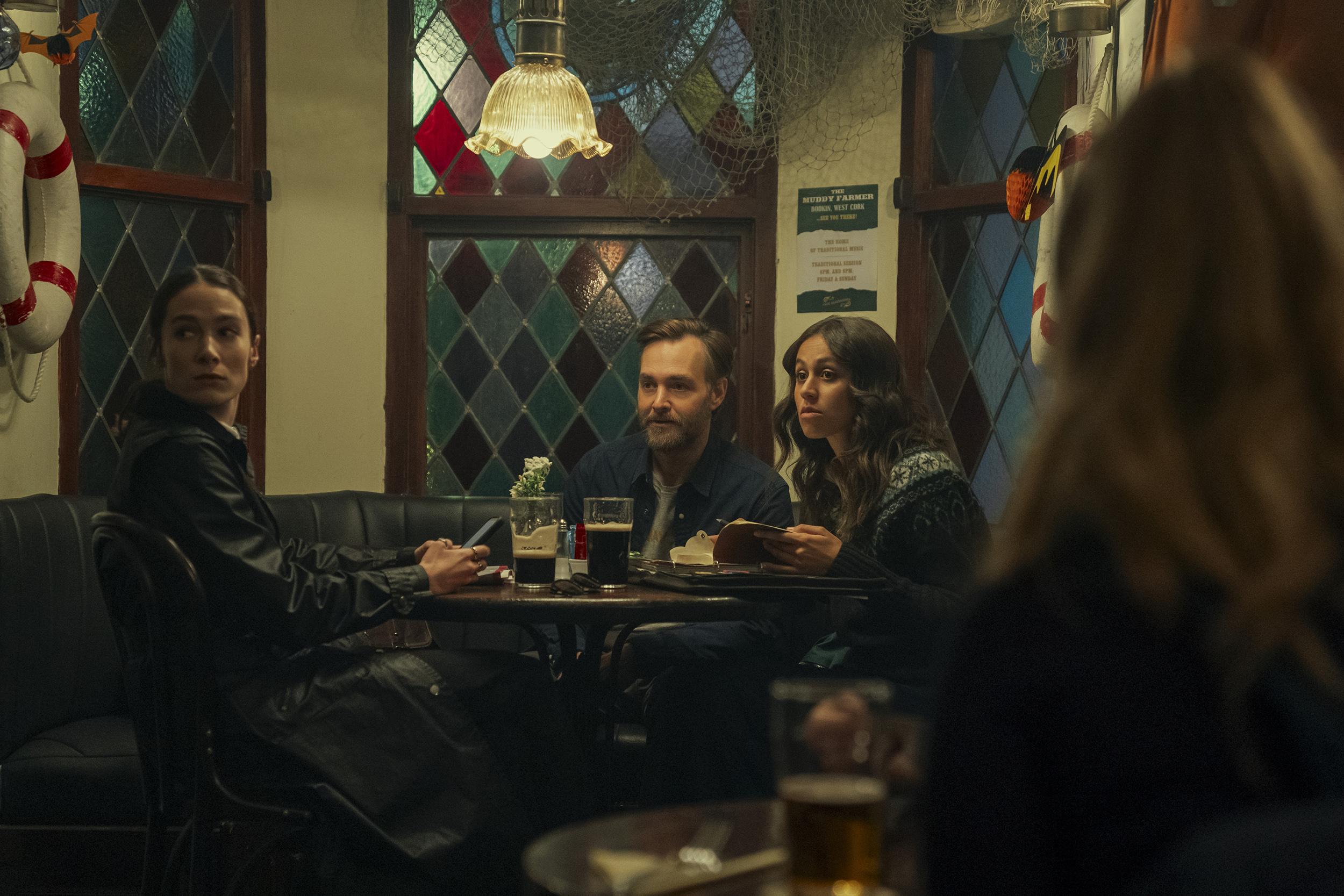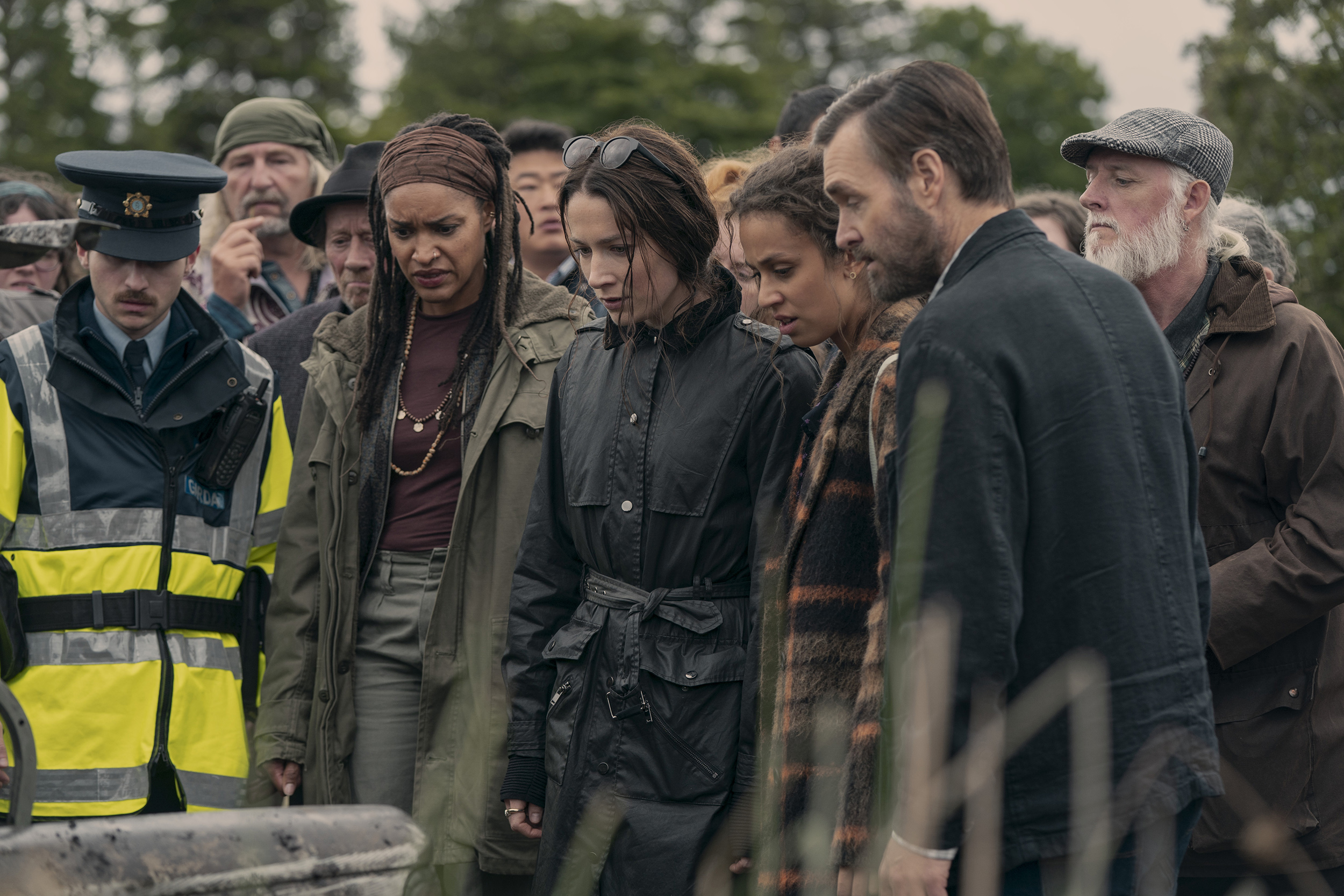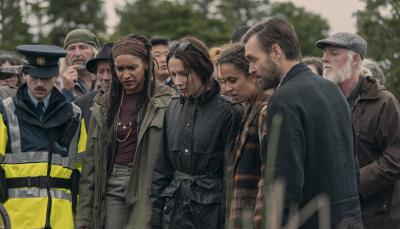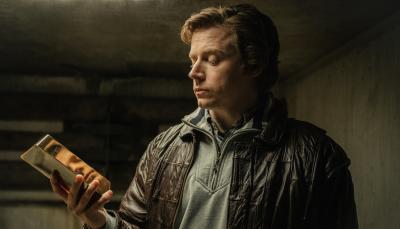'Bodkin's Real Mystery is Its Inability to Dig into the True Crime Genre
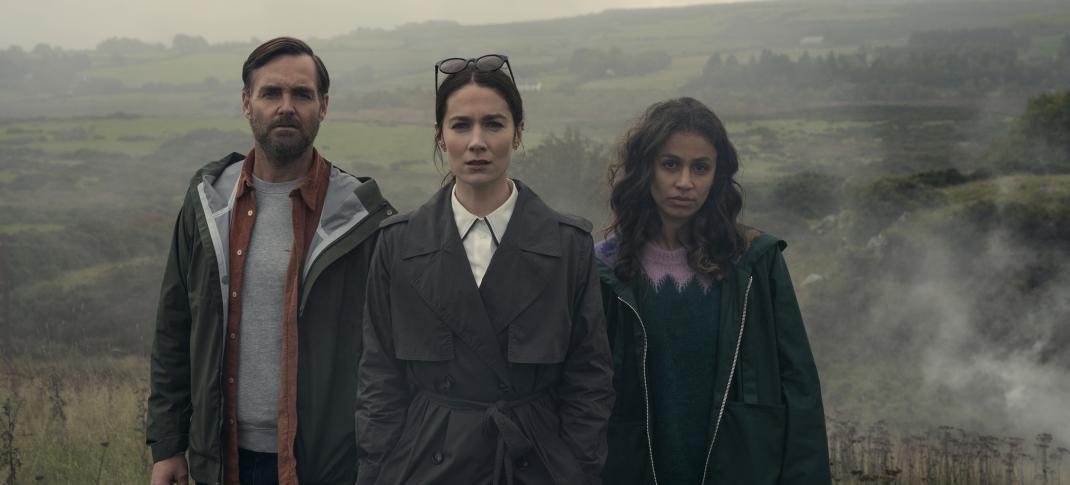
Will Forte as Gilbert, Siobhan Cullen as Dove, and Robyn Cara as Emmy in 'Bodkin'
Enda Bowe/Netflix
No one’s denying that the podcast zeitgeist has wholly vanished from popular culture – it’s still a veritable yet dubious industry now dominated by celebrity-hosted TV recaps, centrist history lessons, and, yes, the dark shadow of True Crime. But a TV show in 2024 centered on the ubiquity and surface-level flaws of the global investigative podcast movement raises a few eyebrows. I mean, how many original reporting true crime podcasts do you hear about these days? No doubt they exist in swarms, but their time as moment-defining pieces of media has come and gone.
This is one of the reasons that, from the off, Bodkin feels a little misjudged. The Netflix series, inexplicably produced by the Obamas’ production company Higher Ground (their first scripted drama!), takes a mismatched group of podcasters to Ireland (the series was filmed entirely on location in Ireland, including in Cork, Wicklow and Dublin) to dig into a decades-old missing-persons case that the local residents would rather stay buried.
We follow acid-tongued Dove (Siobhán Cullen), Gilbert the bumbling yank (Will Forte), and tryhard intern Emmy (Robyn Cara) as the minute town of Bodkin shifts around their intrusive presence, tying itself in knots to conceal a complicated and grief-tinged past. But the quips about podcasts, how serious journalists look down on them, and how they’re popular with even the remote listeners, feel a bit tired. This angle of Bodkin’s premise would land better if the series were made earlier in the entertainment timeline, capitalizing on the true crime craze.
Podcast premise aside, Bodkin is a commendable small-town mystery show. The show has no shortage of suspects and reveals, and the mystery plot is dense and satisfying to unravel. The conflicts of modern life in a traditional and historic land are nothing new to a genre that’s been sniffing at rushed societal development since Chinatown, but creator Jez Scharf and his six other writers offer a compelling blend of culture clashes that run through a community toeing the line between survival and greed.
A local returns from Silicon Valley to build a server farm and revamp a dormant folk festival (Samhain, the Celtic end-of-harvest celebration held on November 1st that introduced many iconic Halloween traditions); an island convent offers New Age health classes after they split from the church; fishermen arrange for local eel to be smuggled to eel-starved markets in Asia. At some points, the pace and order of Bodkin’s reveals come off as too direct or structurally cluttered, but the fault of a too-dense mystery is preferable to one that’s too slight.
The overstuffed narrative problem might have been alleviated if Bodkin didn’t also overextend itself being funny too. With a mix of foul-mouthed Irish dialogue, acerbic and mean-spirited insults, and the usual crop jokes at the expense of over-cheery and out-of-place Americans in Ireland. Bodkin feels like a comedy out of obligation – it’s possible to be an off-kilter mystery drama tinged with dark humor without bending over backward to crack stale jokes every other minute.
The tone problem also extends to its characters: of the main cast, only Will Forte confidently strides the light-hearted and serious stakes, which you’d expect from his exemplary career in character comedy and dabbling in independent drama. Siobhán Cullen does her best, but Dove is far too mean and closed-off as a central detective character to want to spend seven episodes with. She also enters Bodkin’s story, battling her own demons and escaping severe professional mistakes, ones that should factor into Bodkin’s critiques of the true-crime podcast industry but aren't willing to dig into them properly.
We’re near-constantly reminded that the disappearance of a young man and woman during Samhain is not something that three non-Bodkin reporters ought to unravel. Throughout the seven episodes, our podcasters are shooed away, rebuked, and pleaded with repeatedly, all with the hope that this small town’s history won’t be capitalized on by external, capitalist forces.
This is a legitimate line of inquiry for a drama – shouldn’t we have a canon of anti-true crime media? – but it’s one that Bodkin doesn’t unpick with much enthusiasm. All the problems with true crime content are localized into our main characters, mainly the intrusive, unfeeling Dove and the artless hack Gilbert, as if the problems with true crime were down to the individual, unbalanced psychologies and perspectives of its producers rather than the fact that pain and injustice have been industrialized on a scale that’s untenable.
But an argument of this depth can’t really be made inside a Netflix show, who benefit from true crime continuing to be glamorized rather than deconstructed. According to Bodkin, and by extension, Netflix, the true crime industrial complex isn’t inherently immoral; you just need to produce content correctly and not let independent, individualized blind spots get in the way. Such insipid thinking is what makes Bodkin an engaging watch, but a poorly explored commentary on the real world.
Bodkin begins streaming with all episodes on Netflix on Thursday, May 9, 2024.

